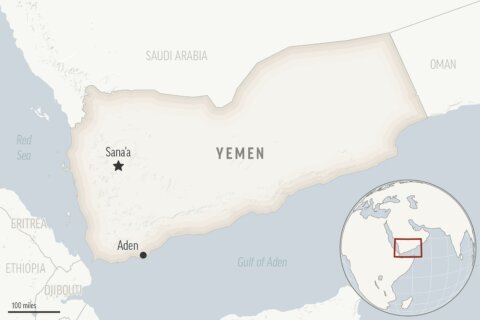GUATEMALA CITY (AP) — Guatemalan President Bernardo Arévalo’s new administration says it will make addressing widespread extortion its top security priority.
Interior Minister Francisco Jiménez, a security expert who has previously held the position, explained that Guatemala’s extortion problem is different from that in some neighboring countries.
Only about 20% of the extortion cases are attributable to gangs, while the rest are gang “imitators,” Jiménez said, meaning that opportunistic criminals trade on the violent reputation of the gangs to extract money from people.
Authorities also trace most of the extortion back to Guatemala’s prisons, where inmates use contraband phones to threaten and terrorize small business owners.
“As President Arévalo said, the issue of extortion is what we are going to make a particular priority this year,” Jiménez told The Associated Press in a telephone interview this week.
To address it, Jiménez said the government would launch a public awareness campaign against extortion, reinforce the police and their intelligence capacity, especially within the prison system.
“We believe the majority of the extortion comes from the prison system, as well as other important crimes like kidnappings and hired killings that are organized inside the prisons,” Jiménez said.
A young shop owner on the outskirts of Guatemala’s capital, who requested anonymity to discuss the extortion she has suffered, said that she opens the doors of her small food shop each day fearing that a gang member will drop off a cell phone on which she would then receive a call demanding payment.
The woman said she had been extorted before and recalled when gang members gathered her and other business owners on her block to threaten them. “They asked for money in exchange for not cutting us to pieces,” she said.
Arévalo, who was sworn in during the early hours of Monday, also has focused his attention on the prison system, saying Wednesday that he believed that its deficiencies and corruption were a large part of Guatemala’s security challenges.
The problem is not isolated to Guatemala. Ecuador’s government has blamed much of its recent spiraling violence on the organized criminal groups that control the prisons. Mexico too has repeatedly found organized extortion groups operating inside its prisons.
Jiménez said another security priority would be going after drug trafficking operations, noting that their criminal enterprises often expand into other areas.
Arévalo campaigned on going after Guatemala’s deep-rooted corruption, some of which is fueled by drug proceeds. But his ability to tackle that and many other issues could be hindered by the multiple investigations of him and his party by the Attorney General’s Office.
The U.S. government, the Organization of American States and others have said the investigations are politically motivated. Attorney General Consuelo Porras has been sanctioned by the U.S. government and accused of significant corruption.
Arévalo said Friday that he had requested a meeting with Porras for next week where he planned to ask for her resignation. The law does not allow the president to remove her from office.
Copyright © 2024 The Associated Press. All rights reserved. This material may not be published, broadcast, written or redistributed.







